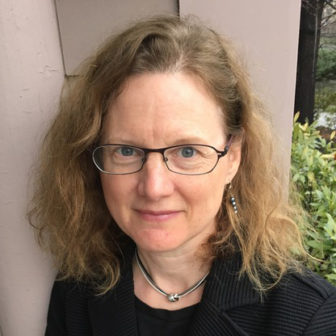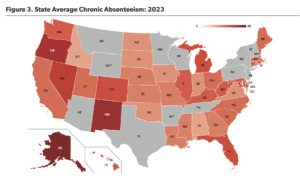
View Apart/Shutterstock
.
Be it with outrage or eye-rolling, most of us were confounded by the spectacle of college students indulging in spring break rituals — where social distancing is definitely not on the cocktail listing. Many will sympathize with Texas House Speaker Dennis Bonnen, who had this to say: “Grow up.”

Lael E.H. Chester
But that’s the problem. Nobody grows up all at once, and certainly not on command. Emerging adults — people ages 18 to 25 — have been at the center of a number of high-profile stories about reckless social gatherings during the COVID-19 pandemic. This comes as no surprise to students of human development. Emerging adulthood is characterized by embracing risk-taking, focusing on anything but the consequences of one’s actions and being heavily influenced by peers.
We now know that these ways of thinking — which are normally associated with adolescents — are common among older youth as well. The brain continues to develop through the mid-20s, with the last area of the brain to fully form being the prefrontal cortex, which helps us be more thoughtful and less impulsive. It is not a question of character or intelligence, it’s just that people in this age range are biologically not grown up.
This is why Vermont has led the way by reforming its juvenile justice system to extend beyond 18 — a number that is based on convention and not on the actual science of human development. Ironically, as some emerging adults are being criticized publicly for their response to COVID-19 and being entreated to “grow up,” legislatures around the country appear to be sidelining bills that would include some of them in their states’ juvenile justice system.
Marketers, however, have paid much more attention to this age group. An investigation uncovered that a travel agency arranging a spring break cruise in March refused to refund deposits and was posting photos on Instagram of other college students drinking and dancing in close quarters. “Week 2 = EPIC,” the post read. “We would not mind being quarantined with our week 2 friends Who’s ready to go back?” It would be hard to compose a message better targeted to emerging adults.
The reaction of some emerging adults to COVID-19 risk shows the downside of this age range. But there are many upsides. Imagine a world where we were marketing to emerging adults something better than a booze-soaked cruise?
Society could handle them differently
Imagine if that same kind of savvy went into selling 18- to 25-year-olds on public service or getting an early start on retirement saving? A risk-taker might be first in line to sign on to a project to improve water access in a rural area. A person highly influenced by peers might become a diligent saver if there was a way for friends to learn about investment in a group and cheer on each other’s progress.
More privileged emerging adults are often protected from the risks associated with this stage of development. They generally find themselves in college, which is quite a forgiving environment. The spring breakers who tested positive are paying a price because this is an extraordinary time when risks are higher for all people regardless of their demographics. Ordinarily, things like overindulging in alcohol or violating a noise ordinance with friends carries few sanctions for college students.
Less privileged emerging adults are much more likely to become involved with the criminal legal system. They get arrested at higher rates than any other age group and they recidivate at higher rates — because the system’s response to them is ineffective.
As a society, we have failed to grasp the potential for emerging adults to do great things. Certainly we’ve seen some changes that are responsive to the developmental realities of emerging adults, such as later marriage and longer financial dependency on parents.
There are implications here for many areas of society: legal system, education, public health and career pathways. Before we can create opportunities for emerging adults, we must first understand them. We must recognize that blowing out 18 candles — or even 21 — on a birthday cake does not set off a magical transformation.
Maturity is a process, and young people become more responsible in a gradual manner — and not at arbitrary age markers. Older people must learn about emerging adults with the same resolve we had when we picked up our first parenting books. We must stop reducing this age group to cartoons, or worse — scapegoats.
Here is the real shame of this story: When emerging adults defy caution to spend their vacation with friends, they truly are growing up. They are acting independently. They are building an identity for themselves, one that relies more on connections to friends than to families.
They are doing it badly, by older adult standards, but their behavior is consistent with their developmental stage and quite predictable. The sooner we understand that, the better we will be positioned to help them transition toward choices that are better for them and for all of us.
Lael E.H. Chester is director of the Emerging Adult Justice Project at the Columbia University Justice Lab.































